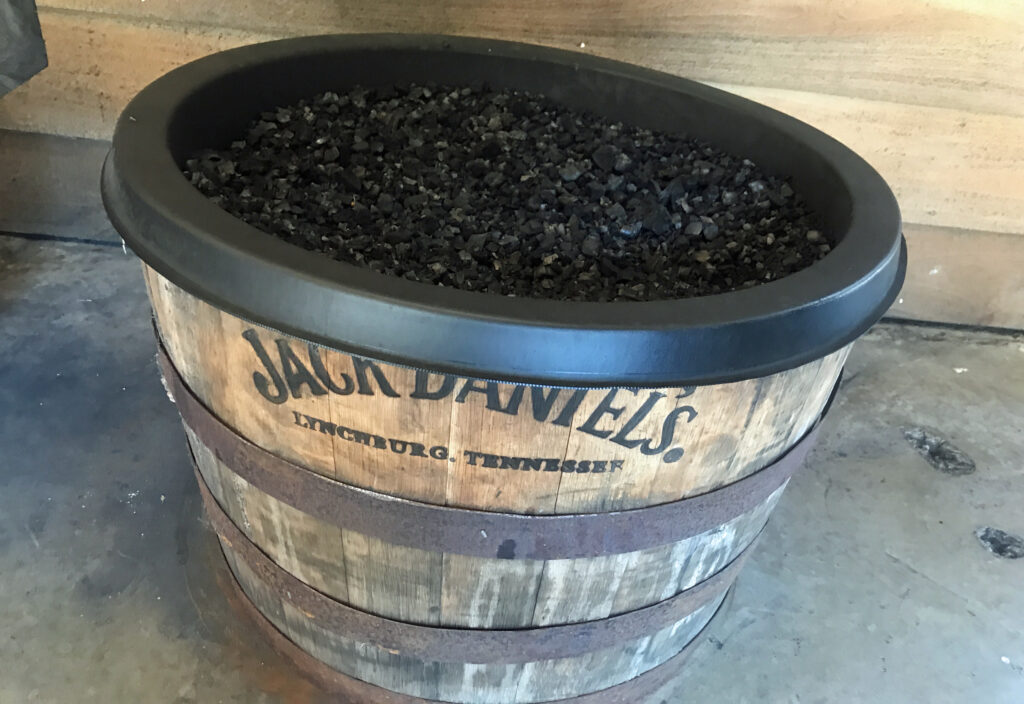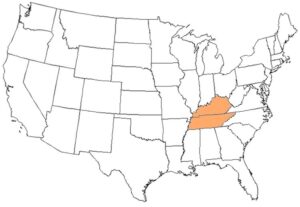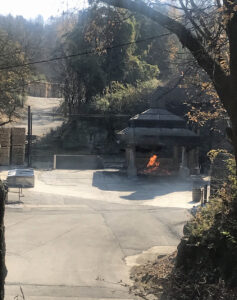
There’s a bit of a controversy in the whiskey world regarding the categorization of Tennessee whiskey and if it should, indeed, be considered a bourbon. In this post, we will take a look at both whiskey categories and give you everything you need to make your own informed opinion.
Whatever you decide, though, there’s no denying that both whiskeys have similar processes and come from the same region of the world. And while bourbon is booming now, Tennessee whiskey also has enjoyed phenomenal growth recently — especially since 2009 when the state threw out its antiquated laws on distillation. But more on that later …
What is bourbon?
We’ve talked in this space numerous times about the rules and regulations of bourbon, but I think it’s important to go through these again.
In 1965, the U.S. Congress formally recognized bourbon whiskey as a “distinctive product of the United States” and outlined the following rules:
- Bourbon must be made in the United States.
- Bourbon must be made using at least 51% corn.
- Bourbon must be aged in new, charred oak containers (barrels).
- Bourbon must not be distilled higher than 160 proof.
- Bourbon must not be put into a barrel higher than 125 proof.
- Bourbon must not contain any flavorings or colorings.
- Bourbon must be bottled at 80 proof or higher.
While some people think bourbon can only come from Kentucky, that is simply untrue — it just has to be made in the United States — and, in fact, all 50 states have produced bourbons, for better or worse. However, Kentucky does produce 95% of the world’s bourbon, mainly due to the abundance of natural limestone-filtered water and the seasonal temperatures that help expand and contract the distillate in the barrel over time.
What is Tennessee whiskey?
Tennessee and Kentucky are neighboring states, with Tennessee to the south of the bluegrass state. So it makes sense that long before government regulation, distillers in the region made their whiskey typically in the same fashion.

And since Tennessee is also ripe with limestone-filtered water and seasonal temperatures, although it does skew a tad bit warmer than Kentucky, the distillers there enjoyed the same natural resources as Kentucky when making their whiskey.
Let’s take a quick look at Tennessee’s distilling history:
Prohibition in Tennessee unfortunately lasted much longer — 28 years to be exact — than the federal Prohibition of 13 years. This completely wiped out all Tennessee whiskey distilleries at the time until 1938, when statewide Prohibition ended and only three distilleries were allowed to make whiskey: Jack Daniel’s (1938), George Dickel (1958) and Prichard’s (1997).
Wrought with antiquated laws, no other distilleries were allowed to open in Tennessee until 2009, when lawmakers passed a law allowing the legal production of whiskey and other distilled spirits in 41 counties. (For a complete history of distilling in Tennessee, check out this article I wrote for Mint Julep Experiences.)
Since 2009, dozens more distilleries have opened up, thus helping propel the category of Tennessee whiskey to consumers all over the world. (Jack Daniel’s is still the biggest selling American whiskey brand, outselling any bourbon.)
But let’s get back to the basics.
The legal definition of Tennessee whiskey is straight whiskey made in Tennessee. In 2013, Gov. Bill Haslam signed a bill that further defined the category, requiring the Lincoln County Process (which involves maple charcoal filtering) to be used for products produced in the state labeled as “Tennessee whiskey,” along with the existing requirements for bourbon.
That was information overload, so let’s unpack the previous paragraph. First of all, Tennessee whiskey can only be made in Tennessee. Understood. The next part is a little tricky. It follows all the requirements of bourbon, which we went over above, plus the Lincoln County Process. So let’s tackle that.
What is the Lincoln County Process?

The Lincoln County Process is an extra step in the whiskey-making operation that involves filtering distillate as it comes off the still through sugar maple charcoal.
The distillate is then put into new, charred oak barrels to age for several years.
The process is supposed to remove harsh notes and create a smoother, more mellow whiskey in the end, and it was first created at Jack Daniel’s Distillery by Master Distiller Nearest Green.
(Back then, the Jack Daniel’s Distillery was located in Lincoln County, Tenn.)
The Lincoln County Process does not add anything to the whiskey but instead removes various fatty acids and unsavory flavors.
What is your opinion?
These days, if you ask any Tennessee distiller if their whiskey is bourbon, they will say yes — it is both. It is a bourbon made in Tennessee that has been filtered through maple charcoal. That process does not add anything to the spirit, so it still follows every rule of bourbon.
And in fact, several trade groups, like the Distilled Spirits Council of the United States, puts both Tennessee whiskey and bourbon in the same category when reporting/tracking data.
At the end of the day, Tennessee whiskey wants to be its own category, and that’s pretty much accepted in the industry. Tennessee distillers also label some of their products as “bourbon” by choosing not to use the charcoal mellowing — but with or without the charcoal, I believe the whiskey is still bourbon at its core.
What are your thoughts?


My personal position on this subject is that Tennessee Whiskey is Bourbon. Period. Those who claim that it is not are just being dilletantish and picayunish 🙂 I will happily have a ‘wee dram’ of either Kentucky or Tennessee Whiskey any time, and enjoy them both!
Same here. Cheers!
I note that on the Jack Daniels webpage they state that Jack Daniels is Tennessee whiskey, and NOT bourbon.
Yeah, I saw that, too. But the new consensus in the industry — and this is coming from many of Tennessee distillers — is that Tennessee Whiskey is bourbon. Even Jack Daniel’s current master distiller Chris Fletcher stressed to me recently that the Lincoln County Process is not additive, meaning nothing is being added to the distillate that would disqualify it from being bourbon. My guess is the website hasn’t been updated in some time.
I thought Jack Daniels is a sour mash and only corn is used?
Jack Daniel’s is a sour mash, but so are many bourbons. Sour mash just means they set back some of the mash to use in future batches (for consistency), whereas sweet mash is a new batch every time. And no, Jack Daniel’s is not all corn. It is made with at least 51% corn and also contains rye and malted barley (the JD mash bill is 80% corn, 12% rye and 8% malted barley). It follows each and every step bourbon does and adds 1 additional step: the Lincoln County Process.